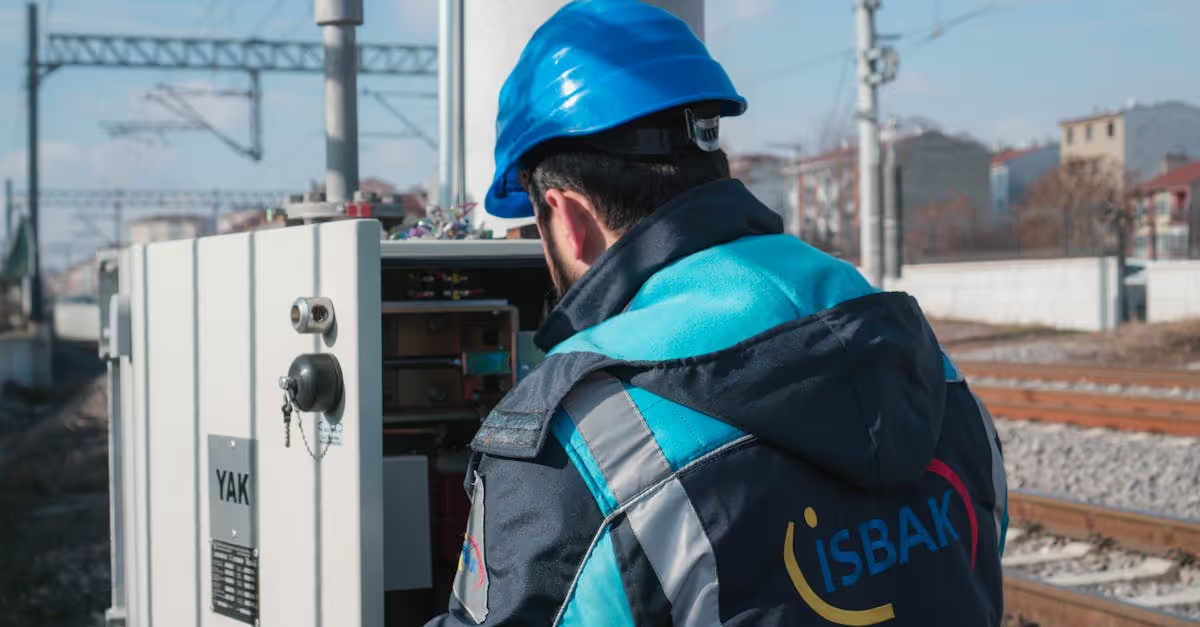Key Takeaways
- Importance of Inspections: Regular pool inspections are essential to ensure safety, prevent costly repairs, and maintain the pool’s overall value.
- Preparation Steps: Homeowners should schedule inspections in advance and gather necessary documentation, such as maintenance records and previous reports, to facilitate the inspection process.
- Scope of Inspections: During an inspection, key elements such as the pool area, fencing, equipment, and safety features are thoroughly evaluated for potential issues.
- Common Findings: Inspectors often uncover issues like cracked tiles, malfunctioning alarms, and water chemistry problems, which can escalate if not addressed promptly.
- Post-Inspection Process: After the inspection, homeowners receive a detailed report outlining findings and recommendations, which is crucial for making informed decisions about maintenance and repairs.
Owning a residential pool can be a dream come true, but it also comes with responsibilities. Did you know that nearly 60% of pool owners neglect regular inspections? This oversight can lead to costly repairs and safety hazards. That’s why understanding what to expect during a pool inspection is crucial for every homeowner.
Understanding Residential Pool Inspections
Pool inspections play a crucial role in maintaining safety and performance. These assessments help homeowners identify issues before they become costly repairs, and they provide peace of mind.
Importance of Pool Inspections
Regular pool inspections are vital for several reasons. They guarantee safe swimming conditions, keeping our families and friends protected. Inspections also check for necessary maintenance tasks, like verifying the integrity of pool barriers and ensuring that equipment runs efficiently. A well-maintained pool can enhance our property’s value and longevity. Studies indicate that approximately 60% of pool owners miss routine inspections, which can lead to unforeseen problems.
The process becomes easier with the support of various tools, such as mobile workforce management and service business automation software. These solutions streamline scheduling and tracking, allowing technicians to efficiently manage their tasks. Engaging a qualified technician for pool inspections helps us enjoy our pools without worry, contributing to our overall service business growth.
Common Reasons for Inspection
We conduct pool inspections for numerous reasons. Routine maintenance checks identify hardware issues, ensuring equipment functions properly. Seasonal preparations help us ready our pools before summer or winter, which can prevent damage from harsh weather.
Compliance with local regulations is another critical factor. Many areas require specific safety standards, and inspections confirm we meet these legal obligations. Even if we think everything looks fine, the unseen problems, like leaks or cracks, can cause significant issues down the line.
Using tools like job scheduling software for technicians allows us to efficiently manage these inspections. This technology helps keep track of appointments and assessments while engaging customers through reliable communication channels. By staying proactive—like scheduling an inspection before a big pool party—we can maintain our pools’ condition and elevate everyone’s experience.
Preparing for a Residential Pool Inspection
Preparation makes a residential pool inspection smooth and effective. By taking a few simple steps, we can set ourselves up for success and avoid any surprises.
Scheduling the Inspection
Scheduling the inspection requires some planning. Reach out to a qualified inspector at least a few weeks in advance. Finding a time that works for both us and the inspector improves the inspection experience. Also, consider scheduling the inspection during a less busy time of year, like early spring or late fall. This timing can also help us avoid peak seasons when technicians are in high demand. Using technician scheduling tools can simplify this process and enhance communication with the inspector.
Gathering Necessary Documentation
Gathering necessary documentation prepares us for any questions that may arise. Compile documents related to the pool installation, maintenance records, and any previous inspection reports. Having these records readily available shows our commitment to keeping the pool in good condition. Inspectors often appreciate when homeowners have organized information. If we don’t have some of this paperwork handy, it’s okay, too. Just be prepared to answer questions about maintenance, chemical treatments, and equipment repairs. This information helps the inspector assess our pool's overall condition effectively and ensures we maximize the benefits of the inspection.
What to Expect During the Inspection
During a residential pool inspection, we assess critical elements that contribute to pool safety and performance. Each step helps identify issues that could affect our enjoyment of the pool or pose safety risks.
Initial Assessment of the Pool Area
The inspection kicks off with a thorough evaluation of the pool area. We check the fencing, gates, and screen enclosures. They're not just for looks; they play a vital role in keeping our pool secure from unwanted visitors. The inspector examines the proximity of the pool to electrical wires and outlets, as any hazards here can lead to severe consequences.
Detailed Examination of Pool Components
Next, the inspector dives into the pool components. They'll review the filtration system, pumps, and heaters to ensure everything operates smoothly. We're all familiar with the sinking feeling we get when equipment malfunctions. Regular inspections prevent these moments of panic. Inspectors also verify that safety features, like alarms and lifeguard equipment, function correctly. They'll check if we can access essential tools quickly and safely.
Common Issues Found During Inspections
Inspectors frequently discover common issues during pool inspections. Cracked tiles, worn-out pool covers, or malfunctioning alarms can crop up unexpectedly. When we overlook small problems, they can escalate into expensive repairs. We may find ourselves facing issues like improper water chemistry, which invites unwanted algae growth. By identifying these potential pitfalls early, we protect our investment and maintain a fun, safe swimming environment.
Post-Inspection Process
After a residential pool inspection, understanding the next steps is vital for homeowners. Here's what we can expect regarding the process and how to proceed.
Receiving the Inspection Report
Inspectors provide a detailed report that outlines findings and potential issues. This document lists everything, from minor concerns to significant repairs. It serves as an essential tool for making informed decisions. The report includes photographs and descriptions, helping us visualize areas needing attention. Accessing this report through a homeowner service app streamlines communication and ensures we receive timely updates. We can ask questions or clarify points with our inspectors. It's crucial to read the report thoroughly and not rush through it. Often, we find that understanding the context of each issue leads to better decisions about repairs and maintenance.
Conclusion
Preparing for a residential pool inspection is key to ensuring our pools remain safe and enjoyable. By understanding what to expect and taking proactive steps we can minimize potential issues and enhance our pool's longevity.
Gathering necessary documentation and scheduling inspections during off-peak times not only streamlines the process but also shows our commitment to maintaining our investment.
After the inspection we should carefully review the report and engage with our inspectors to clarify any concerns. This approach empowers us to make informed decisions about repairs and maintenance, ultimately ensuring our swimming environment remains safe for family and friends.
Frequently Asked Questions
Why are regular pool inspections important?
Regular pool inspections are essential for maintaining safety and performance. They help identify issues before they become costly repairs and ensure compliance with safety regulations. By catching potential problems early, homeowners can provide a safe swimming environment and enhance their pool’s longevity and property value.
What should I prepare before a pool inspection?
Before a pool inspection, gather essential documents like pool installation records and maintenance history. Scheduling the inspection in advance, preferably during off-peak seasons, can also enhance the experience and demonstrate your commitment to maintaining the pool’s condition.
What happens during a pool inspection?
During a pool inspection, an inspector evaluates the pool area, including fencing and safety features. They thoroughly examine components like filtration systems and water chemistry, identifying any issues such as cracked tiles or unsafe practices to ensure everything operates smoothly and safely.
How can I streamline the inspection process?
Using tools like mobile workforce management and job scheduling software can streamline the inspection process. These tools enable technicians to manage tasks efficiently, maintain effective communication with homeowners, and ensure timely inspections, leading to smoother experiences for all parties involved.
What should I expect after the pool inspection?
After the inspection, homeowners receive a detailed report outlining findings and potential issues. This report typically includes photographs and descriptions for clarity and should be reviewed thoroughly. Engaging with the inspector for clarification ensures well-informed decisions regarding repairs and ongoing maintenance.






